The Lonely Arts Club
The Lonely Arts Club is a podcast series by the Institute for Creative Enterprise. During each episode, we hear from an arts professional about their journey into the arts and where their path has taken them.

From film directors and musicians to arts consultants and exhibition curators, series one is full of funny anecdotes, fond memories and advice on embarking on a career in the industry.
The podcast has already featured fascinating guests such as Rita Tushingham, Nisha Katona, Will Sergeant and Willy Russell with more to come in upcoming seasons.
Check out our recent episodesSeries four
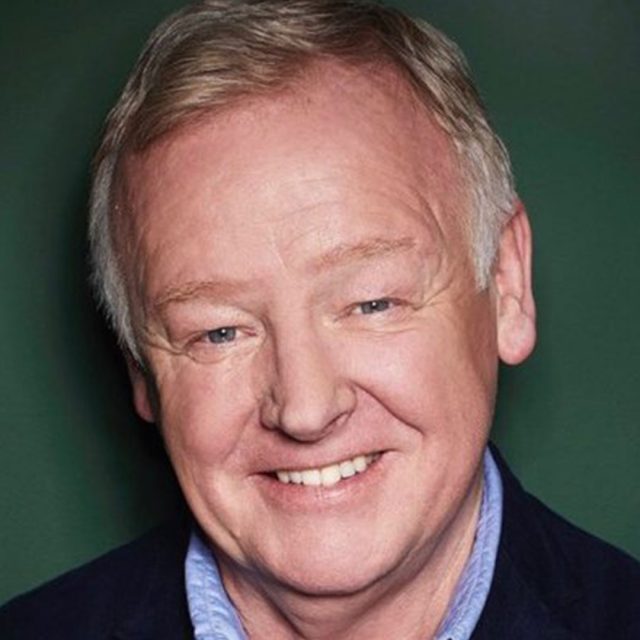
Martin McQuillan is joined by Les Dennis.
Les is an actor and comedian and although he describes himself as a shy person, he admits that once he caught the performing bug, there was no stopping him.
Developing a successful career in entertainment has taken Les down many paths, including being one half of a comedy duo, spending 15 years on primetime Saturday night TV and more recently finding a new love for opera.
During this episode, we speak to Les about the motivation to keep developing his craft and the highs and lows of a life in showbiz.
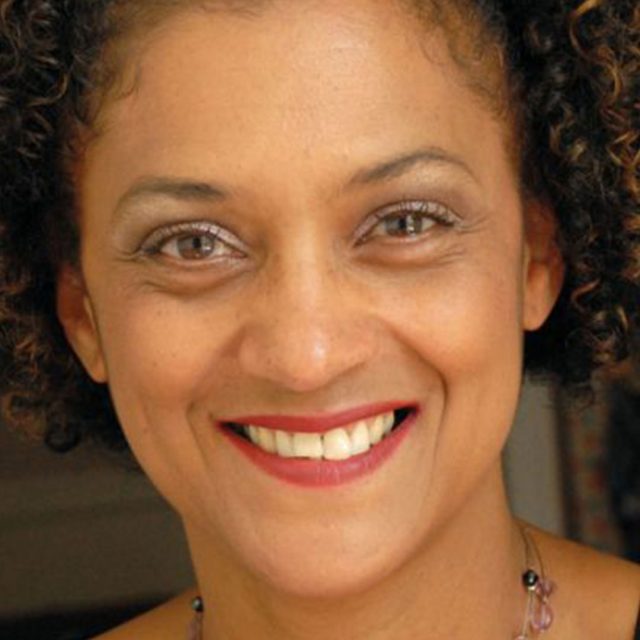
This week on The Lonely Arts Club, we’re joined by Liverpudlian actress, Cathy Tyson.
Cathy’s love for acting came from being in plays at school, which explains why she is still so passionate about the arts being a part of education. During this episode, we go back to the beginning where we learn about Cathy’s life growing up, why her Mum was such a role model to her and how her love for the stage grew.
Turning a hobby into a successful acting career, Cathy got her big break when she was just 18. We hear of her journey from stage to screen and the reasons behind choosing to go back into education as an adult.
Following on from her time with the Royal Shakespeare Company, Cathy made her film debut in 1986 with Mona Lisa – a performance which brought her critical acclaim, giving her the opportunity to continue developing professionally in a variety of roles.
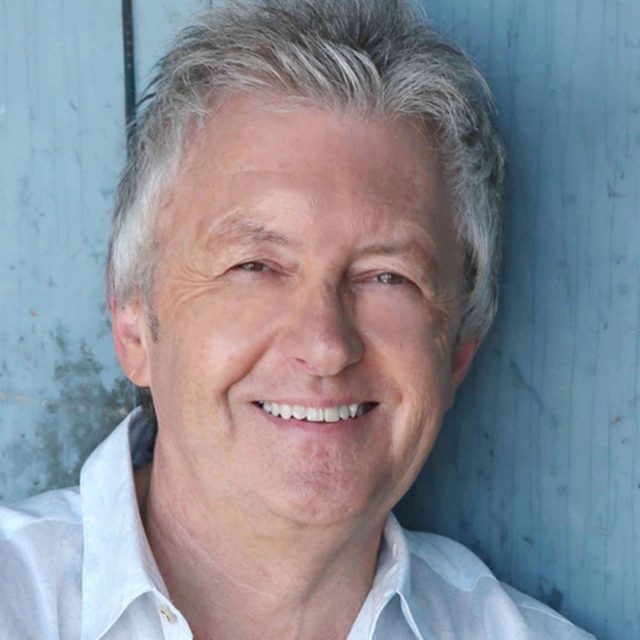
This week on The Lonely Arts Club, Martin McQuillan is joined by Mal Young.
Mal, who was born and bred in Huyton, Liverpool admits that growing up, he didn’t know much about working in media but as he looks back on his childhood and his love for television, it seems he was always destined for a life behind the lens.
Reminiscing about his home life, Mal laughs as he confesses to pretending to be a programme scheduler when he had control of the family television and VHS, however this isn’t a million miles away from the path that his career was about to take.
A sequence of serendipitous moments perhaps, or through sheer determination and passion, Mal career in television has been hugely successful. Working his way up in Brookside, Mal played a huge part in some of the soap opera’s biggest storylines, which opened up a multitude of avenues for him. We hear about Mal’s time working for the BBC and how he’s ended up crossing the pond, spending half of his time in America.
With some great tips for those wishing to follow in his footsteps, hear Mal’s story during the episode, available to download on Spotify, Apple Podcasts and many more podcasting platforms.
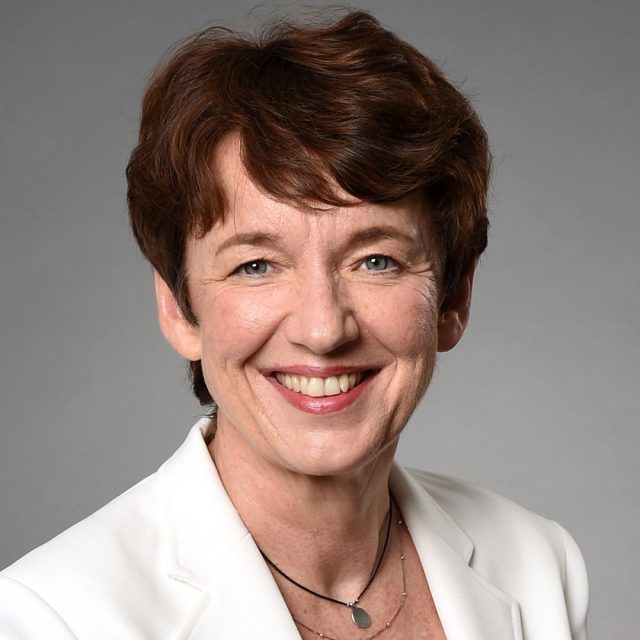
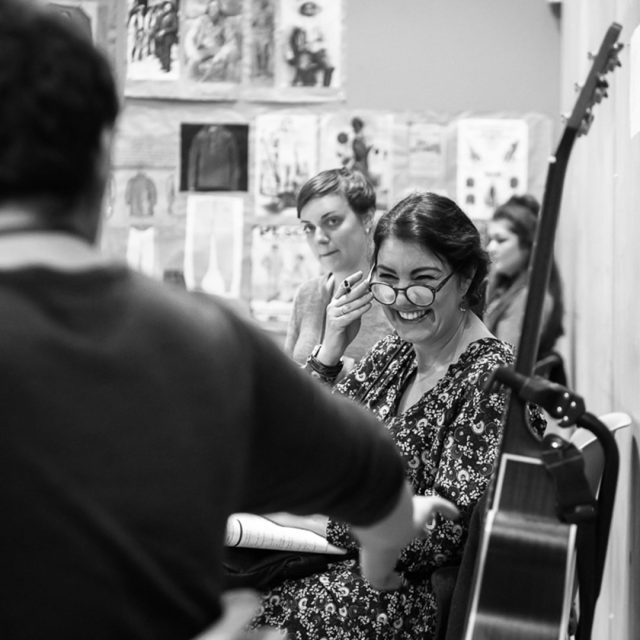
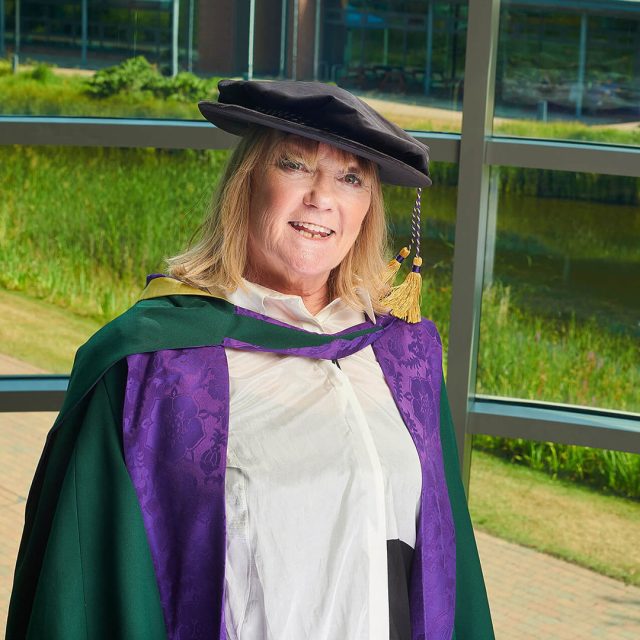
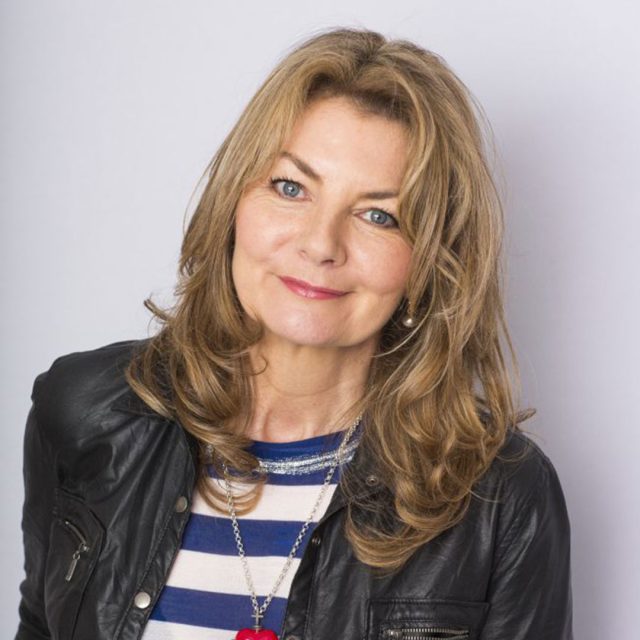
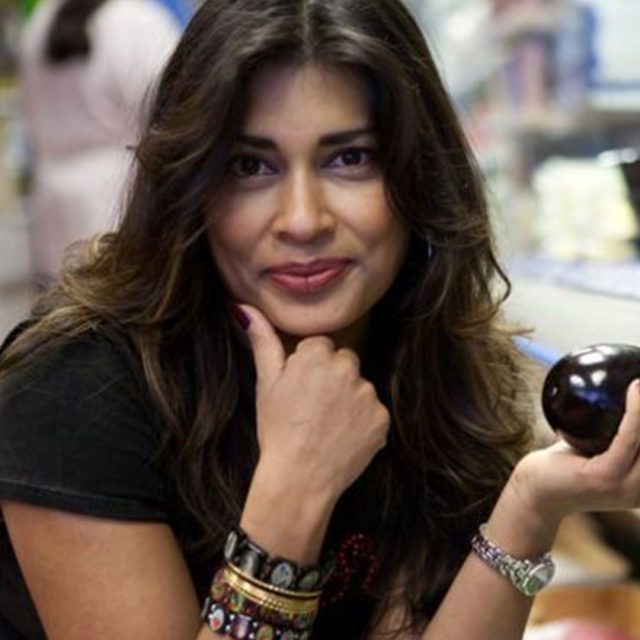
In this bonus episode, we celebrate International Women’s Day 2022 by taking a look back at some of the inspirational female guests we’ve interviewed.
These women have all made their mark in the cultural industry despite the many hurdles they’ve had to face throughout their personal lives and careers. The food industry, the world of TV and taking to the stage as a comedian are all areas typically dominated by males, however I’ve chosen snippets from our interviews that show how females are turning things around.
During this episode, you’ll hear excerpts from our interviews with:
- Nisha Katona – TV chef, entrepreneur and CEO/founder of Indian street food restaurant, Mowgli
- Gemma Bodinetz – theatre director and former artistic director of Liverpool Everyman Playhouse
- Jo Caulfield – comedian and writer
- Dawn Airey – former managing director for Global (ITV), former CEO of Channel 5 & Getty Images
- Janice Long – former broadcaster and the first female presenter of Top of the Pops
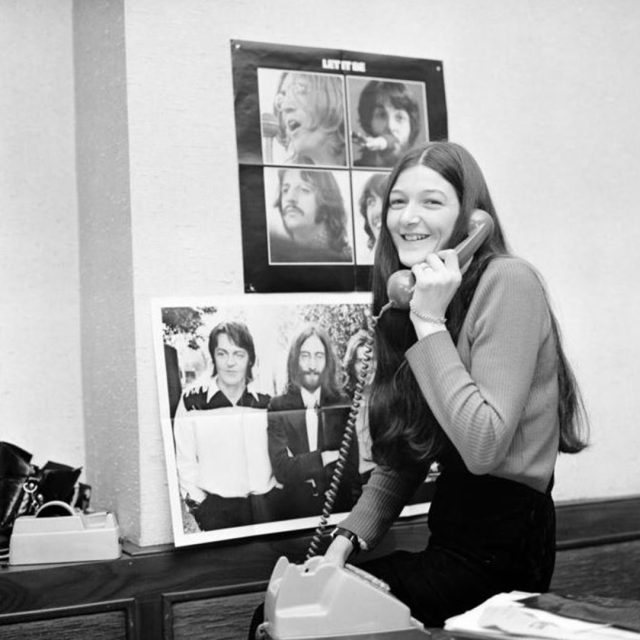
When you think of The Beatles, it’s hard to imagine there was ever a time when they weren’t known worldwide. When they were still just a group of ordinary people oblivious to what fate had in store. But this is exactly how Freda Kelly knew them.
Freda, originally from Dublin, knew The Beatles from their time playing at The Cavern in Liverpool. After becoming friendly with them, Freda was approached by their new manager, Brian Epstein, who asked her to be his secretary. Recalling the days that she became part of a group that was about to take the world by storm, Freda talks fondly of what life was like for her and the families throughout the rollercoaster journey. We hear, in particular, about the relationship that she developed with Ringo’s mum. Starting off as a helping hand with sorting the mail, their bond grew over a tradition of egg, chips and cream cakes.
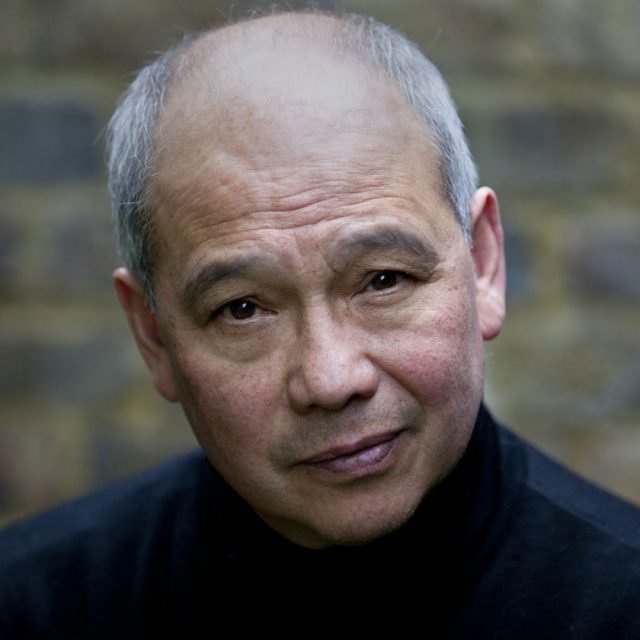
David Yip was the first Chinese lead actor in a British television drama series, fondly remembered by many for creating the role of Detective Sergeant John Ho, in ‘The Chinese Detective’ for BBC TV (1981 – 82.)
Liverpool born and bred, David is the son of a Chinese seaman and Liverpudlian mother and as always in The Lonely Arts Club, Martin McQuillan takes our guest right back to the beginning where it all started. David shares tales of his childhood and how he used his experiences to shape his career as an actor.
Setting off for theatre school in London, David says that he didn’t realise at the time, he was actually leaving home. Now, as he looks back on his career of nearly 50 years, we hear tales of David’s work in the theatre and how that morphed into TV and film.
David found stardom in the 1980s playing the leading role in the BBC series, The Chinese Detective. Was it all down to luck that this was David’s big break? No one will ever know but what’s clear from speaking to David is how much passion he has for the career he’s worked so hard to make for himself and the joy he has in sharing his wisdom with others. David’s career has not only kept him local, starring in UK soap opera, Brookside, but has also allowed him to work on Hollywood hits such as James Bond and Indiana Jones.
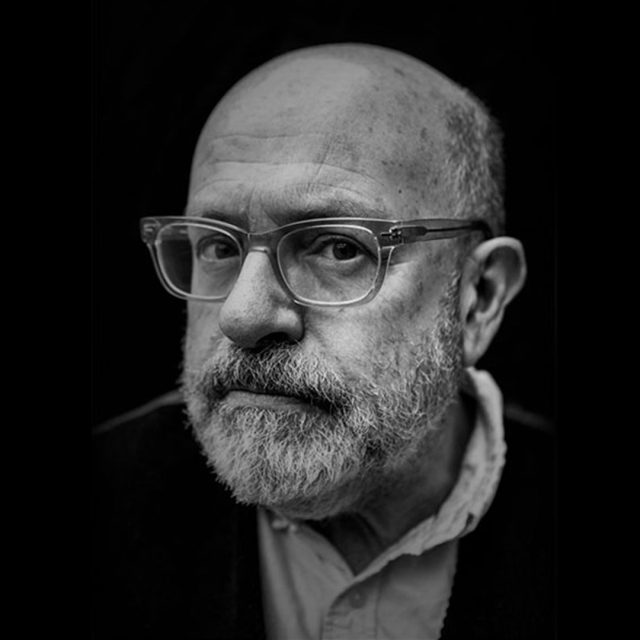
We’re delighted to be back with the fourth series of The Lonely Arts Club, and what a guest we have to kick things off.
John Sweeney – investigative journalist, author and host of a chart-topping podcast – has endless stories to share about his life and work in the media. The son of Liverpudlian parents, John speaks with great warmth about his family and tells humorous tales of how he became a journalist. Brimming with passion for what he does and the career he’s carved out for himself, we hear where John’s inspiration to become a reporter came from and how he managed to find lighter moments even when his work took him to some of the darkest places in the world.
During this episode, John shares with us the story behind the proudest moment of his career and how his path has taken him to meet world leaders such as the Dalai Lama, Donald Trump and Vladimir Putin.
In more recent years, John has written 12 books and is the host of chart-topping podcast, Hunting Ghislaine, where he investigates Ghislaine Maxwell’s involvement in the Jeffrey Epstein scandal.
Series three
Alexei Sayle shares with us his upbringing in Liverpool, son of a Jewish mother and both parents part of the Communist party. He tells of his life in a happy, stable working class family.
His career starts when developing comedy with a friend they begin stand up nights at the student union bar. Then in 1982 he starts working on a late night comedy show called OTT where he meets fellow comedians Lenny Henry and Chris Tarrant, but it’s when he is given his own show in 1988 that he describes this as a time of tremendous happiness.
In 1984 Alexei breaks into the charts with his single “Ullo John Got a New Motor” and is a guest on Top pf The Pops.
More recently Alexei is producing his own podcast and is intending to ride around on his bike with a go-pro sharing observations of the streets of London.
Referred to as The Godfather of Alternative Comedy, Alexei delivers a mixture of stand-up, memoir and philosophy from behind the counter of his Imaginary Sandwich Bar, which can be heard on Radio 4 along with a series he also narrates of dark comic plays adapted from his original short stories.
This episode was recorded virtually meaning the quality of the recording may be slightly different to normal.
Peter Hooton is the lead singer of the Liverpool band The Farm, known for many hit singles including “All Together Now” which reached no. 4 in December 1990.
In this podcast Peter tells us about his time in the music industry, writing hit singles and what he has been doing since lockdown.
Peter himself has delved into the podcast world and through the Liverpool Echo produces Allez les Rouge, a podcast about Liverpool Football Club. He is also Chair of the Beatles Legacy Group and involved with The Spirit of Shankly.
We hear about Peter’s time at primary school in the Old Roan and his secondary school in Bootle where the school bullies would “suck up to him” as his mum was a dinner lady.
Speaking about the band, The Farm, Peter shares how the early days were spent rehearsing in a pub before they had the use of a farm which belonged to the parents of one of the band’s girlfriends – this is where the name originated from. After pub gigs around Liverpool the band received a review in the NME which opened up the door to the John Peel sessions.
This episode was recorded virtually meaning the quality of the recording may be slightly different to normal.
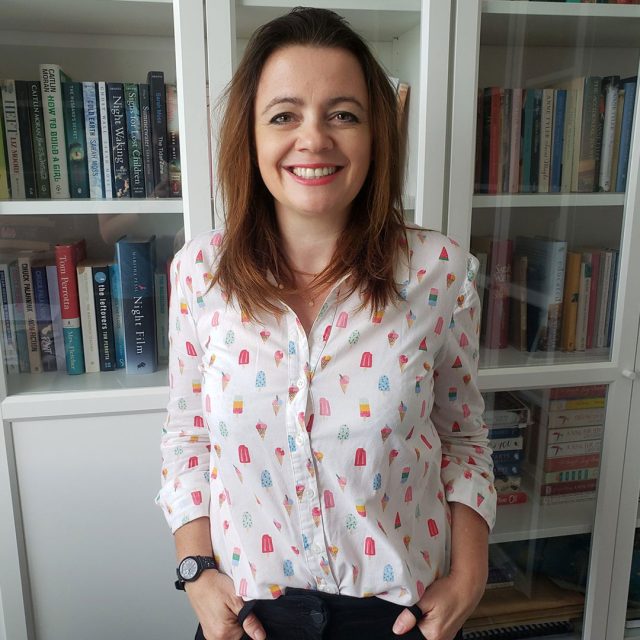
Carys Bray is an author from Southport, Merseyside and she really does have quite a story to share with us.
Carys’ story begins in Southport, where she still resides with her family. However, the life Carys leads now looks slightly different to when she was a child. We hear Carys’ memories of growing up as part of a strict Mormon family and how this became the inspiration for her first novel A Song for Issy Bradley. The novel was serialised on BBC Radio Four’s Book at Bedtime and was shortlisted for several awards including the Costa Book Awards and the Desmond Elliott Prize. It won the Utah Book Award and the Authors’ Club Best First Novel Award and was selected for the 2015 Richard and Judy Summer Book Club.
Carys’ debut collection Sweet Home won the Scott prize and selected stories were broadcast on BBC Radio Four Extra. Her second novel The Museum of You was published in 2016 and her third novel When the Lights Go Out was published in 2020.
We hear about Carys’ experience of going back to university as a mature student and how studying a Masters and PhD at Edge Hill gave her the confidence to become a writer herself.
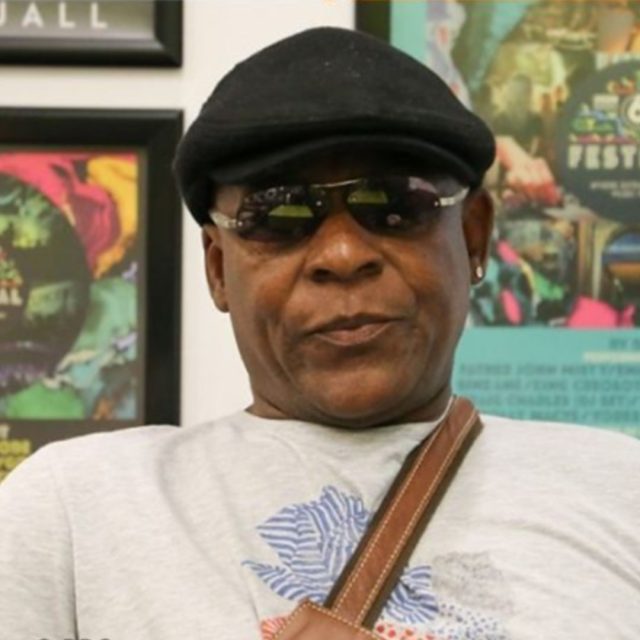
Universally known for legendary hits such as You To Me Are Everything and Can’t Get By Without You, The Real Thing made their mark on the music industry in the 70s, and we have the pleasure of being joined by band’s lead singer, Chris Amoo.
In another of our virtual, lockdown episodes, we speak to Chris about all things music. Where his inspiration came from, how he got into the industry and which way his career has taken him.
Going right back to the beginning of the journey, Chris talks about growing up in Toxteth, how he ended up in boarding school and keeping on the straight and narrow.
A lot of the black Americans were coming in from the bases, bringing the music with them and that’s where we first started hearing really black soul music like the O’Jays and all that. Stuff that you wouldn’t normally hear on mainstream radio you know and this is what formed the way we saw music and it wasn’t until we got to a point where we thought we’ve got something here, we can perform on stage now, where you start having to look a little bit outside of Toxteth. So, as soon as we got our first agent in Liverpool, we realised that there was a world outside of Toxteth that we wanted to be part of.
Chris Amoo
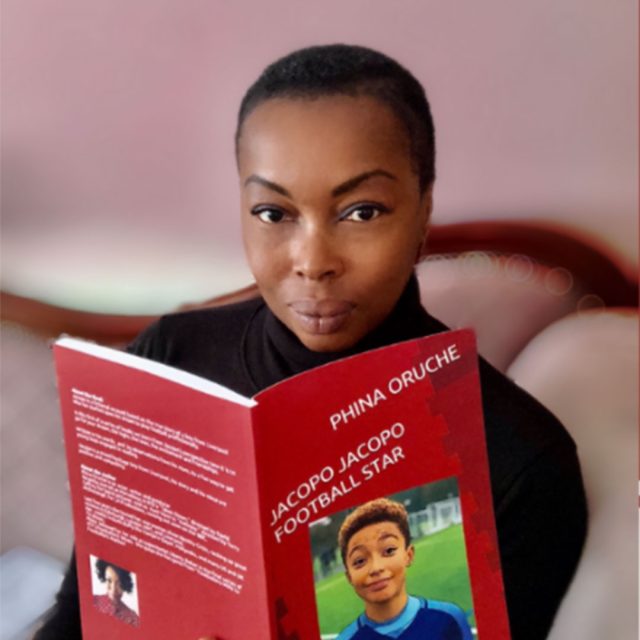
This week on the Lonely Arts Club, we’re joined by actor, model and author, Phina Oruche.
Born in Liverpool to Nigerian parents, Phina Oruche takes us on a journey as she explains how her family came to be in the city. We hear Phina’s experience of growing up in Liverpool and what it meant to her to be able to spread her wings.
Phina’s path has taken her around the world, experiencing many different adventures. From modelling in London to acting in LA, it was back in the UK that the perfect role was waiting for her in hit TV series, Footballers’ Wives
I read “she’s a model, she’s obnoxious, she’s full of herself”, and I went, “oh my God, this is her”. ‘Cos you know…I always know what a Phina part is as soon as I read four words in, I know it’s my part and I was like [shouts] “Liberty Baker. Bye everybody…” and I left. I threw a party and went home. My friend, James said, “Phina, what would you have done if you hadn’t have got it?”, I said, “I would have told everybody I’d died” because I had this huge party. I’m like, “I’m going home to do this part”…I hadn’t even auditioned for the part.
Phina Oruche
The fabulously entertaining Phina shares memories from her colourful career and working with some of the best in the business.
Since coming back to Liverpool, Phina has continued to appear on our screens – most recently as part of LA Productions dramas Anthony and Moving On – and is now also a published author.
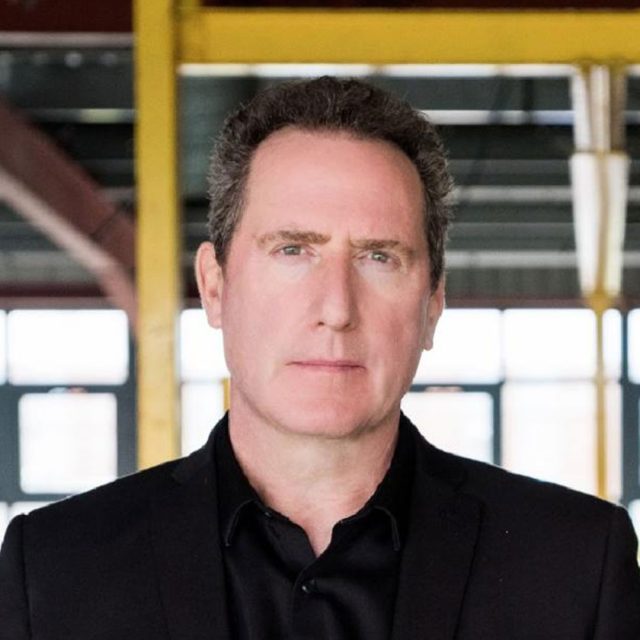
We take a trip down memory lane as we chat with this week’s guest, Andy McCluskey.
Orchestral Manoeuvres in the Dark (OMD) have been around since the 70’s when two school friends decided they’d give music a go. With no huge aspirations to be a musician, one of the band’s founding members, Andy McCluskey, recalls tales of how a lot of the band’s fate happened by chance.
Tony had the Human League on Granada Reports – he used to put bands on. And we thought, “sod it, we’ve met him. Let’s be cheeky and send a cassette, see if we can get on telly”. I thought this was like a myth until two years ago, I actually met Tony Wilson’s partner, Lindsay, and she confirmed that this myth was in fact truth. Apparently she got in the car with him and said, “alright love, what’s this bag of cassettes?” and he went, “oh, it’s the rejects, it’s just all the crap, people wanting us to release a record, it’s all the rubbish”. So she reached into the bag pulled out a cassette and she went “Orchestral Manoeuvres in the Dark, that’s a weird name, let’s put it on”, and he went, “oh no, they played the club last week, they’re rubbish love, two hairy scousers doing electric music”, and she said “well let’s play it anyway”, and she played it and went, “that’s a hit”, so apparently Tony Wilson lent over patted Lindsay on the thigh very patronising and went, “alright love, just for you I’ll sign them”, and that’s how you get a record deal [laughter] fished out of the reject bag by the wife.
Andy McCluskey
Speaking openly about the highs and lows of being in a band, the conversation moves onto more recent years of Andy’s career where he has spent more time as a music producer and songwriter for other artists. Andy’s involvement in establishing girl group, Atomic Kitten was instrumental to their success as he reveals why his career went down this route.
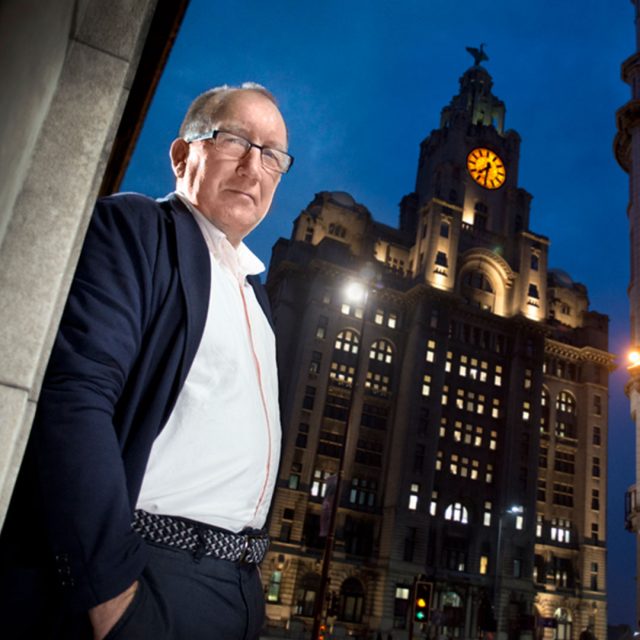
Roger Shannon joins us in The Lonely Arts Club.
As the former Director for the Institute of Creative Enterprise, we invite Roger Shannon onto The Lonely Arts Club to tell us all about his time in the film industry and how he came to be a Professor in Film & Television.
Local lad, Roger, takes us back to the beginning, sharing stories of growing up in Litherland, his rebellious years as a student and finding his way into the media industry.
I always remember when we graduated and at that time we were still in a sense part of a rebellious generation so we turned up but we didn’t go in front to get our scroll, we just sat the back and the Vice-Chancellor who’d been a metallurgical professor announced that “we’re so proud that Teesside Poly is now giving arts degrees and we’re so pleased that we are in the guard’s van of curriculum development”, [laughter]. Being political animals we coined this phrase, ‘guardsvanism’ as a way of trying to make fun of the place but it was a hard place I felt to be doing undergraduate work when there was no culture around you know for – like there is today – for students but in a way we had to build it ourselves. We did a listings mag, we set up a film society, so in the end doing those things was probably more important than the fact that they weren’t there in the first place and we kind of created things for ourselves.
Roger Shannon

For the last few months as the country has been a lockdown of some kind, many of us have looked to TV and radio – comedy in particular – as a form of escapism. So it seemed fitting to invite one of the nation’s best-loved comedians onto The Lonely Arts Club.
In this virtual episode of The Lonely Arts Club, Jo Caulfield, who is not only an award-winning comedian but also a writer and actress, displays her mischievous nature when telling us about her journey so far.
A friend did an open spot at the Comedy Store and I went along to watch them and I remember the bill because it was Mark Lamarr comparing who weirdly I knew from the Rockabilly circuit. I didn’t know he was a comedian. And Jack Dee and Sean Meo. Sean Meo who is still a comedian writes very good, well-structured jokes and I remember watching Sean and thinking “that’s great but I couldn’t do that”,’cos I don’t know how you write these joke things and then when Jack Dee was on I thought “I could totally do that”, because as far as I could see I didn’t see the art in what he did. I just thought, “oh, I moan about stuff too, I complain about everybody, I hate people. I could do this”.
Jo Caulfield
Getting to know about Jo’s childhood and her first steps into the limelight is one of the talking points of this episode, however Jo also discusses making comedy for TV, writing for other comics, such as Graham Norton and her stance on politics in comedy.
Catch this hilarious episode next Tuesday, when it will be available to download from Apple Podcasts and Spotify. Please note, this episode contains strong language.
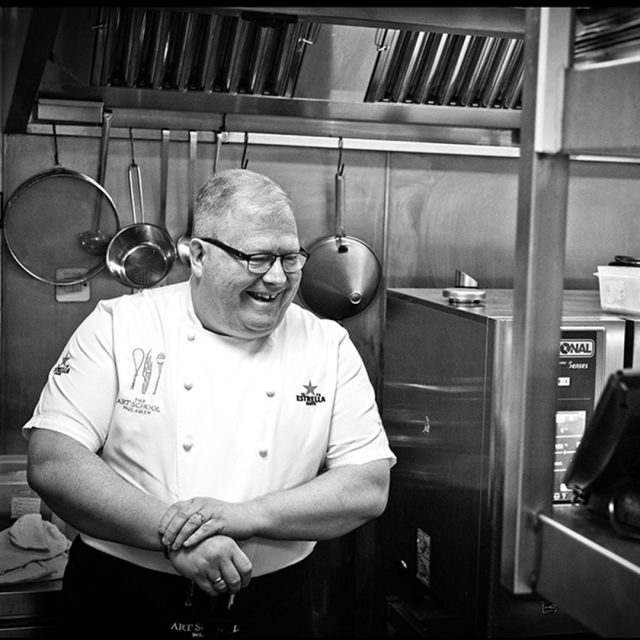
In a very timely episode, Martin McQuillan is joined this week by Chef Patron of The Art School restaurant, Paul Askew.
This week’s guest joins us at a time when the Liverpool City Region was the first area to be subject to the toughest lockdown restrictions in the Government’s new tier system. Being at the centre of such changes for the city, Paul Askew speaks honestly about what impact this will have on the region’s hospitality industry and what positives can be taken from the situation.
As one of the country’s top chefs, listeners can clearly hear Paul’s passion for the work that he does, so naturally the conversation moves on to discuss culinary art, how travel impacted his love of flavours and where the inspiration to climb the hospitality ladder came from.
“I think our household was very much about looking after people and having a good time and I think I used to love that as well…so I think of myself as somebody who likes the food and drink side but I’m driven by looking after people and giving them a good time and making sure they’re OK and creating an environment that’s right for them. I suppose latterly, that’s what I hope I’ve done at The Art School.”
Paul Askew
Listeners can also hear why Paul is so passionate about sharing his expertise with the next generation and what ambitions he still has for his own career.
As lockdown continues to put barriers up for the nation’s hospitality industry, we wish Paul and his team at The Art School the best of luck in such trying times.
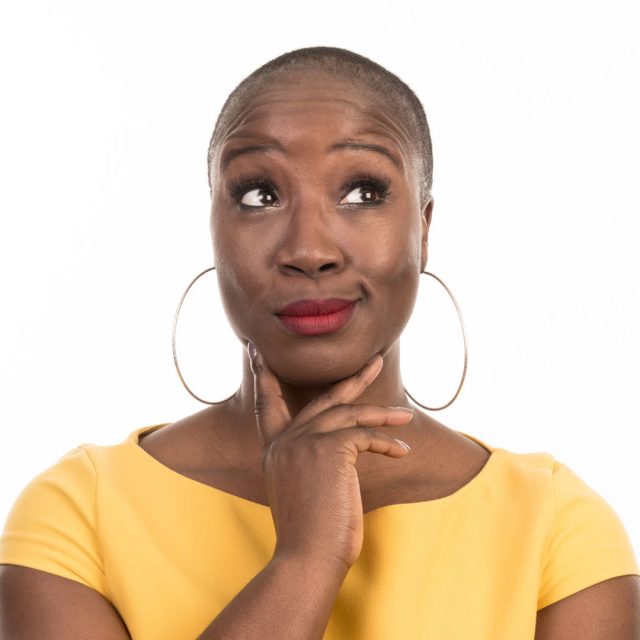
This week on The Lonely Arts Club podcast, we’re delighted to be joined by Ngunan Adamu.
Nigerian scouser, Ngunan, shares memories of coming to the UK as a child and adapting to life in a brand new city.
“People have this kind of typical stereotype of what a migrant looks like and it’s like are you running away from a war torn country or all these things but we weren’t. We had a beautiful big house in Nigeria, we had a gardener, we had two drivers. We had a good family setting but what my Dad was thinking – forward-thinking – was the education system in the UK was better and he wanted us to have a choice of having a life in any country that we chose, so yeah I just remember getting here and just not liking it. Missing my grandparents, not liking school dinners…oh my God. They were disgusting, it was the worst thing ever [laughing]. I think possibly 10 times a year, I would say to my Dad and my Mum, “why can’t we move back?” but I always class myself as a Nigerian scouser because both cultures – ‘cos being scouse is a culture – both cultures are very strong and they’ve complemented me in so many different ways. I wouldn’t have my sense of humour if I wasn’t scouse but I also think my drive comes from being Nigerian.”
Ngunan Adamu
Sharing heart-breaking tales of racism at an early age, listeners gain an insight into Ngunan’s childhood and what gave her the drive to follow her gut and pursue a career in journalism.
We hear what paths Ngunan’s career has taken and how important it’s always been for her to follow her gut instinct. And although Liverpool is evidently a big part of Ngunan’s make-up she speaks openly about the racial issues that the city still faces today and how things need to improve.
We’re delighted to be back for series three of The Lonely Arts Club.
To kick off this season, Martin McQuillan is joined by TV producer and founder of LA Productions, Colin McKeown.
Proud scouser and Edge Hill honorary doctor, Colin, recalls being given an ultimatum by his Mum as she told him that a career in Butlins wasn’t for him and instead he needed to pursue his education. We hear how Colin’s journey in education and the TV industry unfolded as he shares funny tales of his career that took him all around the world.
Since being back in Liverpool, Colin has been involved in fantastic projects and was a member of the original team that helped Brookside develop into one of the nation’s most-loved soaps.
Series two
As we prepare to launch series three, we look back on the second series of The Lonely Arts Club.
Series two was mostly recorded whilst the UK was under lockdown restrictions, meaning a lot of guests joined us virtually. And although the quality of some of episodes vary slightly, the series was still packed full of funny anecdotes and words of wisdom.
Author, presenter & founder of Indian street food restaurant, Mowgli – Nisha Katona MBE. Nisha takes us through her journey of growing up in Lancashire and practicing as barrister for 20 years before making the life changing decision to open her first Mowgli restaurant in Liverpool.
BAFTA Winning Screenwriter – Joe Ainsworth. Initially wanting to be a singer, Joe tells us how his passion for writing took over and how he ended up working for soap operas such as Brookside and more recently, Holby City.
Business developer & host of The Anfield Wrap podcast and filmmaker – Neil Atkinson. Neil takes listeners through the journey of where The Anfield Wrap began and the story behind its success. We hear about the wider meaning of the podcast and what it means to Liverpool fans in a more cultural sense.
Art curator, writer & director of Liverpool Biennial – Fatos Ustek. Starting off in Turkey in the 1980s, Fatos tells us how she studied hard and dreamt of becoming a mathematician. We hear about the transition into the arts, which has allowed Fatos to travel and work around the world before coming to Liverpool.
Founder of production company, Pinball London – Paula Vaccaro. Paula takes us on her journey from growing up in Argentina to establishing her own production company in the UK. We hear what it takes to be successful in the media industry.
Musician & guitarist of Echo & The Bunnymen – Will Sergeant. Will reflects on where his love for music and style came from and how his visits to Liverpool music venue, Eric’s inspired him to create his own unique sounds leading him onto achieving global success with Echo & The Bunnymen.
Author and award-winning journalist – Brian Reade. Brian speaks openly about the bigger moments as his journey through journalism began to unfold. Poignant memories for Brian include his involvement in campaigning for the Hillsborough disaster and once spending the day with sporting legend, Muhammad Ali.
Co-founder of Doc Society (formerly Brit Doc) – Beadie Finzi. As Beadie discovered her passion for filmmaking, we hear how her career started and where the dream of The Doc Society first began.
Radio & TV presenter – Janice Long. Janice takes a trip down memory lane as she reflects on growing up in Liverpool. Starting off her media career in the studios of BBC Radio Merseyside, we hear how this path then led Janice to become one of the first female broadcasters on BBC Radio One.
Former Managing Director (Channel 4) & CEO (Channel 5) – Dawn Airey. Heading up teams that commissioned programmes such as Supermarket Sweep, This Morning and Father Ted, Dawn tells us all about the ups and downs of being in such powerful positions.
Playwright – Willy Russell. Taking a trip down memory lane, Willy recalls the horrors of school as a youngster in comparison to the joy he found in going back to education as an adult where he found his passion for writing.
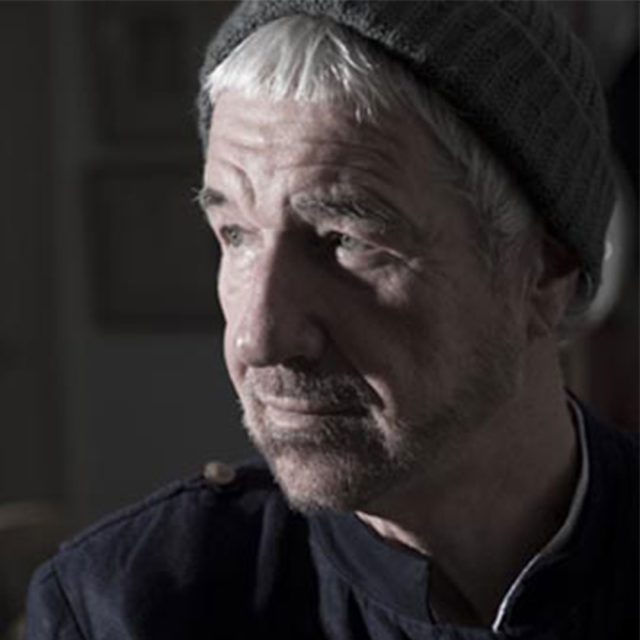
In our final episode of this series, Martin McQuillan is joined by legendary playwright, Willy Russell.
Taking a trip down memory lane, Willy recalls the horrors of school as a youngster in comparison to the joy he found in going back to education as an adult where he discovered his passion for writing.
Having spent years as a musician, writing lyrics had become part of Willy’s life but it wasn’t until he went back to night school to study that the world of writing changed everything.
“This lovely man treated us all as equals and adults and I remember in the first couple of weeks, he introduced us to Animal Farm – I’d never heard of George Orwell. I went back the next week and he said to the class, “of course, you do know that this book is an allegory,” and I was learning to be a bit bolder and I said, “sorry, I don’t know what that means”. And he said, “well it’s a story that’s about one thing that is in fact about another. In this case the Russian Revolution right?” Brilliant. I mean, I’d just enjoyed it about pigs and animals, but suddenly understanding completely how it mirrored Orwell’s take on what happened with totalitarianism…of course I became the world’s biggest bore on Orwell.”
Willy Russell
Willy has certainly made a mark in theatre and film, writing Iconic plays such as Blood Brothers, Educating Rita and Shirley Valentine.
As we come to the end of series two, we’d like to thank you for your support and look forward to bringing you more guests of The Lonely Arts Club soon.

In the penultimate episode of series two, we’re joined by Dawn Airey.
After graduating from Cambridge University, Dawn set out on what was to be a very colourful and successful career in media and television.
Admitting that she always felt like an outsider, Dawn wasn’t one for shying away and quickly made her mark wherever she worked despite being in a heavily male dominated industry.
“When Andy offered me the role, he said – and I was only 27 – ‘I want you to be Controller of Planning at Central’, and I said, ‘you’ve gotta be joking, I’ve no interest in that. A – I don’t quite know what it is, and B – it’s not Controller of News & Current Affairs’. He said, ‘well, what’s it gonna take? I’m gonna double your salary and what about a company car?’ Now at the time – this is very important – this is how careers can turn on very daft things. I had a Peugeot 106 and it was breaking down every month and costing me £200 to fix. So for a Ford Fiesta XR2, I became Controller of Planning, and the irony of that was, when it was delivered to Birmingham and I took it and parked it in the NCP car park, the day I took delivery of it was stolen the same day. It was true. Knicked the same day.”
Dawn Airey
Dawn’s determination and hard work resulted in her successfully fulfilling roles such as Managing Director for Global (ITV), CEO of Channel 5 and running one of the world’s largest visual media companies, Getty Images.
Heading up teams that commissioned programmes such as Supermarket Sweep, This Morning and Father Ted, Dawn tells us all about the ups and downs of being in such powerful positions.

Joining us on this week’s episode of The Lonely Arts Club is Janice Long.
Janice takes a trip down memory lane as she reflects on growing up in Liverpool.
Starting off her media career in the studios of BBC Radio Merseyside, we hear how this path then led Janice to become one of the first female broadcasters on BBC Radio One.
Making herself known in a male dominated industry was no mean feat and it wasn’t long before Janice became a household name. During this episode, Janice relives highlights like being the only female broadcaster to cover the Live Aid concert.
“I had a friend of mine, Andy Catlin and we decided to meet up and go to Live Aid at the same time, quite early so it was just as the sun was rising. We milled around and got our instructions and I remember standing on the stage and watching the people arrive and they were like little dots, you can imagine and they got bigger and bigger and bigger as they got towards the stage. And I remember being told that if Status Quo “if it doesn’t work, you go on”. And I was thinking, “I’m not a stand-up comedian, what the hell am I gonna do?” But it worked and Tony Hadley and I just hugged each other and we were in tears”
Janice Long
You can still catch Janice on BBC Radio Wales where she presents an evening show, Monday-Thursday from 7pm. Still passionate about giving a platform to new and upcoming artists, Janice speaks about what she’s listening to at the moment and who we should be listening out for.
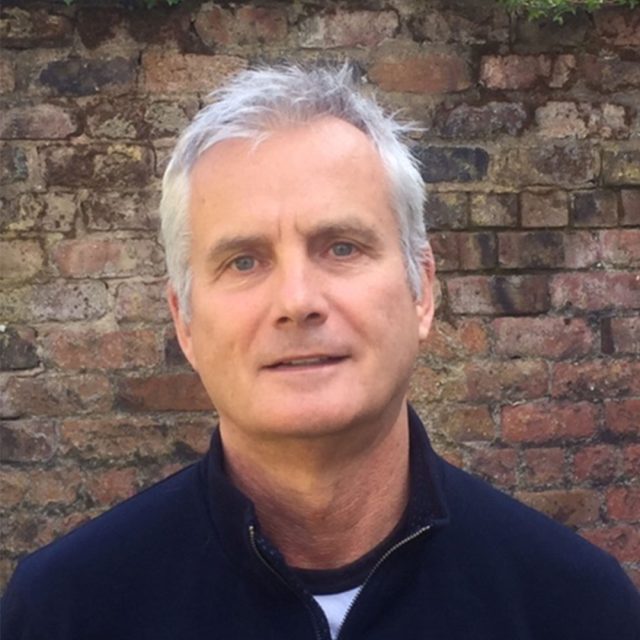
Award-winning journalist for the Daily Mirror and author of An Epic Swindle, Brian Reade, joins us on this week’s episode of The Lonely Arts Club.
Local lad, Brian, talks about growing up in Liverpool and his unusual inspiration behind going to university.
After beginning his career reporting for local newspapers, Brian speaks openly about the bigger moments as his journey through journalism began to unfold. Poignant memories for Brian include his involvement in campaigning for the Hillsborough disaster and once spending the day with sporting legend, Muhammad Ali.
“If I had to stop being a journalist tomorrow and look back and say, over the thirty-odd years you’ve been writing, what’s the most important thing? Without doubt, it’s the stuff on Hillsborough.
Over the years, I’d do loads of features on Hillsborough and we’d get politicians interested and it was just a cog to help push it forward at a time when the families didn’t have any voice.
So it would definitely be that because you can write about politics, you can write about football. You don’t change the world – neither do I think you should change the world. But if you can help change it a little bit just with one story or one issue, then you’ve done OK.”
Brian Reade
Listeners get an insight into the Hillsborough campaigning that Brian was involved in and why he believes the city of Liverpool and its people are so unique.
Throughout this episode, Brian shares his advice for anyone thinking of becoming a journalist and despite the world of media changing dramatically, explains how the principles are still exactly the same.
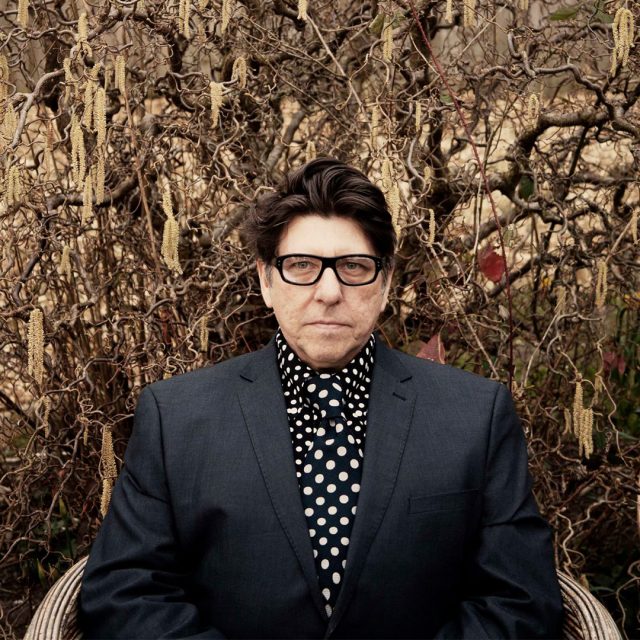
Our journey with Will begins in a small village on the outskirts of Liverpool, where he grew up and eventually formed legendary band, Echo & The Bunnymen.
Will explains how finding his love for an avant-garde, alternative sound heavily influenced his musicality and subsequently assisted in developing the style of Echo & The Bunnymen.
As a self-confessed punk in his early years, Will reflects on where his love for music and style came from and how his visits to Liverpool music venue, Eric’s inspired him to create his own unique sounds.
“That lead me to Lou Reed and then I started buying the solo albums and I just thought it was another Lou Reed solo album. I didn’t realise it was this weird avant-garde sound art thing and I was a bit cheesed off when I got it but I used to play it dead loud in the back room of my house and the neighbours came knocking round and I was a snotty horrible teenager. The bloke from next door, Mr Harrison, came round in a string vest and I said, “put a shirt on if you wanna complain to me” and he went away…but I did turn it down.”
Will Sergeant
Echo & The Bunnymen has achieved decades of global success and as the only constant member of the band, Will shares funny anecdotes and fond memories from along the way.

Paula Vaccaro, an award-winning producer and screenwriter, takes us on her journey from growing up in Argentina to establishing her own production company in the UK (Pinball London).
Although an Italian family migrating to Argentina is not unusual, the story behind how Paula’s family came to be there is a very interesting one.
Paula’s work ethic meant that by the time she was in her mid-twenties, she had already become a successful journalist and broadcaster.
Longing to spread her wings, we learn what it was that brought Paula to Europe and the lessons she learnt along the way.
“Things became super different. Going out for lunches and dinners became a luxury. I would never forget waiting for public transport and having my feet soaking wet and being cold – extremely cold – like I’ve never imagined one could be. So, London was a full-on reckoning. And yet, I fell madly in love with the place.”
We hear what it takes to be successful in the media industry and what advice Paula has for anyone wishing to set-up their own production company.
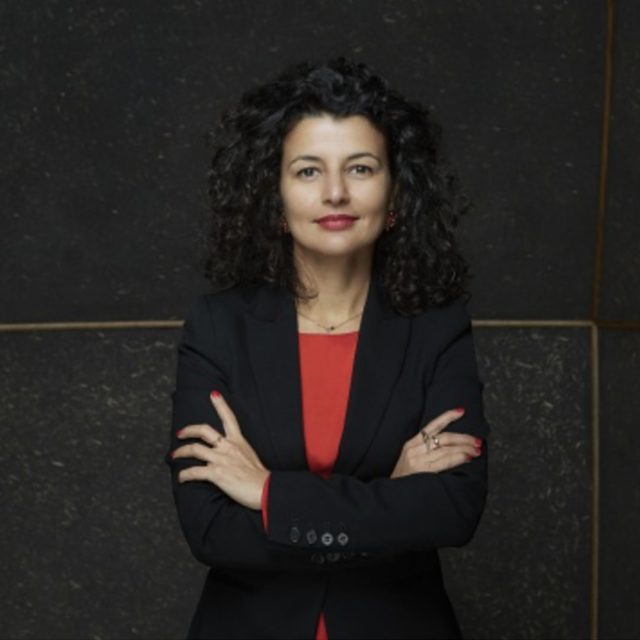
This week on The Lonely Arts Club, we’re joined by Fatos Üstek.
Fatos is the Director of the Liverpool Biennial, a curator and an art writer.
We’re taken on a journey that begins in Turkey in the 1980s, where Fatos studied hard and dreamt of becoming a mathematician.
“Turkey has been going through a lot of changes – you might have been following. But growing up there has many positive sides. It was good but also you have many hardships, growing up as a woman in Turkey is an arduous task and I feel I’ve been supported by my family to cultivate the strong voice that I have today”.
Fatos Üstek
We hear about the transition into the arts, where this passion was ignited and how it’s influenced Fatos’ career, which has allowed her to travel and work around the world before coming to Liverpool.
Since the early days, Neil has played a major part in what’s now a worldwide media phenomenon and has been instrumental in its success. As one of the business developers of the podcast – and everything else that comes with it – Neil takes listeners through the journey of where it all began and the story behind its success. We hear about the wider meaning of the podcast and what it means to Liverpool fans in a more cultural sense.
“I think a lot of the cultural markers and the way in which Liverpool speaks about itself is heavily orientated by really good work, but work none-the-less from the 70s and 80s. And I think what I began to be aware of was, there was stuff we were doing that was different…and all of that led to this real feeling of being part of a global community and that’s what people wanted from The Anfield Wrap. They wanted that feel of connection and closeness to a city.”
Neil Atkinson
However, it’s not all football talk, Neil has many strings to his bow and shares the ups and downs of scriptwriting and making his first film, Native.
We hear Neil’s path through education and his words of advice for anyone who’s interested in establishing a career in the media.
Joe Ainsworth receives Honorary Award from Edge Hill University
We hear how Joe’s writing career began from winning a competition (under a fake name) and the different avenues his journey has taken.
Initially wanting to be a singer, Joe tells us how his passion for writing took over and how he ended up working for soap operas such as Brookside and more recently, Holby City.
Writing stories ahead of their time for Brookside, Joe became renowned for his contributions to hard-hitting storylines.
“If you want to be a writer, write. Pester everyone…you’ve got to be cheeky and you’ve got to have thick skin. Every time you write something – or whatever field of the arts you want to go into – you’re laying yourself bare, so you’ve just got to be prepared for people to mock it, ignore it. It’s just people’s opinions. But the main thing is you’ve just got to write. Painters have to paint. Musicians have to perform. You’ve just got to do it and the more you do it, hopefully the better you’ll get at it.”
Joe Ainsworth
Throughout this episode, we hear about Joe’s upcoming feature film, The Last Bus, and what advice he has for aspiring writers.

Welcome back to The Lonely Arts Club for series two. As we launch this series, the UK is currently in lockdown, meaning the quality of some of our episodes may be slightly different to normal.
In this episode, Nisha takes us through her journey of growing up in Lancashire and practicing as a barrister for 20 years before making the life changing decision to open her first Mowgli restaurant in Liverpool.
We hear what life is like as a successful entrepreneur and what it means to run a business that also gives so much back to the community.
Series one
In this bonus episode, we share a compilation of the highlights of The Lonely Arts Club, series one.
As we listen to tales from the Director of Flash Gordon, Mike Hodges, hear fond memories from star of stage & screen, Rita Tushingham & learn about the world of journalism & broadcasting with Paddy Hoey, we reflect on what a diverse & extraordinary range of guests we’ve welcomed onto our first series.
Listen to our ‘Best of Series One’ episode, giving you snippets from each of our guests:
Artistic Director (Liverpool Everyman Playhouse) – Gemma Bodinetz. After studying at Trinity College, we hear all about how Gemma – along with her confidence – was recognised by some of the best in the business like Max Stafford-Clark and Harold Pinter.
Artist, Musician & Photographer – Mike (McGear) McCartney. Mike treats us to some fascinating stories that he recalls from growing up in Liverpool. As a former member of music trio, Scaffold, we hear tales of the serendipitous moments that made up his career.
Creative, Cultural & Digital Economy Strategist – Jo Wright. As the creative & cultural sector slips further down the list of priorities for the country, we often wonder what the future holds for the creative economy & many look to professionals like Jo for advice.
Actress – Rita Tushingham. Born & raised in Liverpool, Rita became the first significant female face of the British New Wave in Cinema. Starring in films such as ‘A Taste of Honey’ & ‘The Knack’, Rita shares how her career was shaped by being cast in controversial roles.
Journalist, Broadcaster & Expert in Media Activism – Paddy Hoey. Paddy speaks about growing up in Northern Ireland & how his path has brought him to Liverpool. Paddy also shares his views on what role the media has in today’s society and the drastic changes that the industry has seen over the last 20 years.
Arts Professional – Angela Samata. Angela’s career has taken her down many pathways, including presenting the BBC1 BAFTA nominated Best Factual TV documentary Life After Suicide. Angela shares the intimate story of how her life was turned upside down when she unexpectedly lost a loved one through suicide. Please note, some listeners may find this episode upsetting.
CEO of FACT, Liverpool – Nicola Triscott. Hear about Nicola’s journey to become the ‘boss of FACT’ following her success in establishing & developing Arts Catalyst. Nicola shares what it means to run an arts organisation in a city like Liverpool & how she’d like it to continue making an impact on Merseyside & its young people.
Film Director & Bass Player of The Farm – Carl Hunter. Following the release of Carl’s first feature film in 2019, Sometimes Always Never, we hear about what it was like to work with Bill Nighy & Jenny Agutter. Conversation revolves around all of Carl’s favourite topics: film, music, design, fitness & homemade soup.
Director of Tate Liverpool – Helen Legg. Helen gives listeners an insight into how completing an MA in History of Art was the gateway to developing a successful career as an arts professional. Helen speaks of the fondness she has for Liverpool & shares her thoughts on how the creative industry can continue to thrive in the city.
Film Director – Mike Hodges. Best known for shooting films such as Get Carter & Flash Gordon, Mike joins us for the final episode in series one of The Lonely Arts Club to share some fascinating stories of the highs & lows of his career in TV and film. We come to know about Mike’s journey into the business as he tells hilarious tales of his first time in America, falling out with film producers & the horrors of live television.
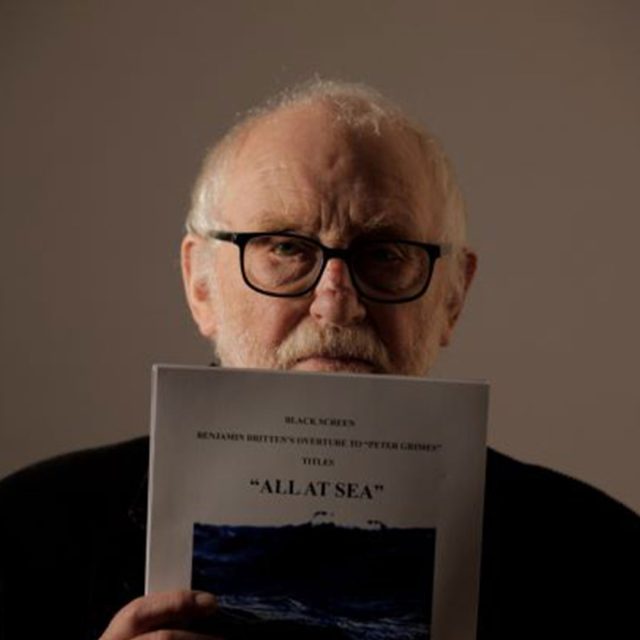
Best known for shooting films such as Get Carter and Flash Gordon, Mike joins us for the final episode in series one of The Lonely Arts Club to share some fascinating stories of the highs and lows of his career in TV and film. We come to know about Mike’s journey into the business as he tells hilarious tales of his first time in America, falling out with film producers and the horrors of live television.
We learn about a new film Mike’s working on in collaboration with Hurricane Films, based in Liverpool. The film, called All At Sea is about his life and tells the story of how Mike’s career was shaped by drifting from one great opportunity to another.
If you start to look at the role that the creative industries can play in regenerating parts of the country. Well, there are parts of Liverpool – Rope Walks, Baltic Triangle – which at times in recent history were derelict, red light areas. Property values were negligible and it has largely been cultural and/or creative industries activity that has started to make those areas more desirable to visit and to live and thereby helps bring some of these communities back from the brink of being wastelands to being some of the most attractive, valuable parts of the city.
Mike Hodges
As the creative and cultural sector slips further down the list of priorities for the country, we often wonder what the future holds for the industry. At a time when funding for theatres, galleries and arts spaces is virtually non-existent, cities and towns are still called upon to deliver a diverse cultural offering to local residents, those passing through and potential tourists.
As the budgets get tighter yet the want and need continues to grow stronger, many organisations look to professionals like Jo Wright for advice. Jo is a Creative, Cultural & Digital Economy Strategist, who has supported major UK cities in their cultural development.
During the episode, we hear what a role like this involves and Jo provides fascinating insight into the world of the cultural and creative industries. What are the trends of the economy? What’s working and what isn’t? How can we tackle the issues that repeatedly crop up? Being an expert in this field, Jo has a wealth of knowledge and there’s lots to cover in just one episode. If you’re interested in the economy of the arts and the role it plays in today’s society, then this is the episode for you.
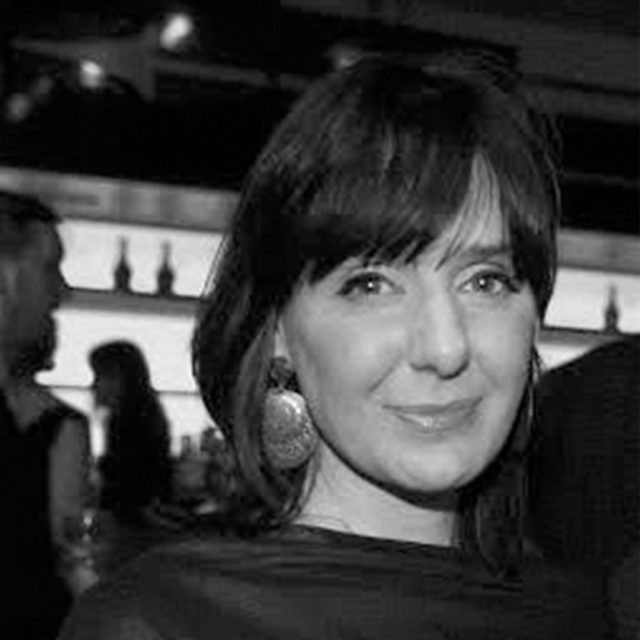
It’s week eight on The Lonely Arts Club and we’re joined by Angela Samata who has worked as an arts professional for over a decade. Angela’s career has taken her down many pathways, including presenting the BBC1 BAFTA nominated Best Factual TV documentary Life After Suicide.
Angela also lead the John Moores Painting Prize at the Walker Art Gallery and her freelance work often links to mental health and wellbeing.
In this episode, we hear about Angela’s journey through education and family life and how it’s brought her to where she is now. Angela shares the intimate story of how her life was turned upside down when she unexpectedly lost a loved one through suicide. Angela speaks of the impact that this has had on her life and the different ways that she’s learnt to live with it, including becoming Chair of the Bereaved by Suicide, for which she is now an ambassador.
Please note
Some listeners may find this episode upsetting.
“Being the new Chief Executive of FACT…it’s my dream job. I’ve always loved FACT & when the job came up, it was a no-brainer for me.”
Angela Samata
2019 saw the welcoming of a new Chief Executive to FACT – Film, Art & Creative Technology – in Liverpool and we were dying to know more. We were delighted to be joined by Nicola Triscott as we learnt more about her journey to become the ‘boss of FACT’ following the success of establishing and developing Arts Catalyst, which became one of the UK’s most distinctive contemporary art and research organisations.
We hear how Nicola’s move to Liverpool coincided with an extremely lively May weekend in the city and she tells us how she’s settled into life up North since then.
In this episode, Nicola also shares what it means to her to run an arts organisation in a city like Liverpool. Listeners can also hear Nicola’s thoughts on the future of FACT and how she’d like it to continue making an impact on Merseyside and its young people.
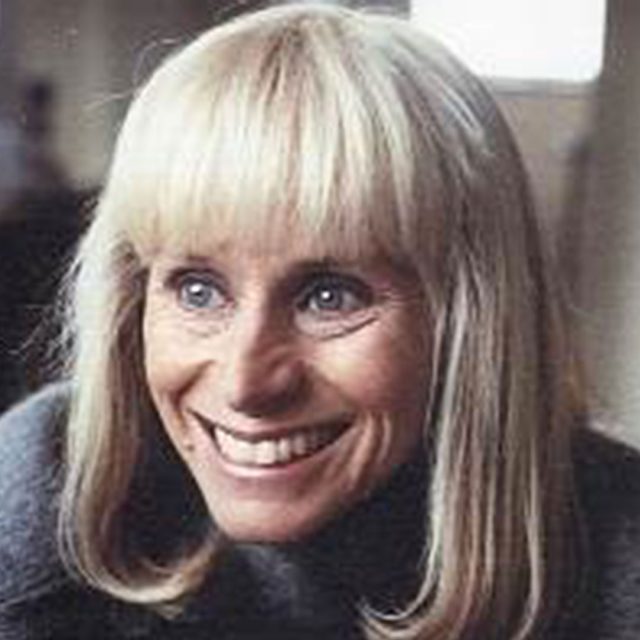
Born and raised in Hunts Cross, Liverpool, Rita Tushingham became the first significant female face of the British New Wave in Cinema.
Her career, beginning at just 17, started in the Liverpool Everyman theatre where Rita was quickly snapped up for a role in a film, leading her down to London. Starring in films such as ‘A Taste of Honey’, ‘Girl with Green Eyes’ and ‘The Knack’, Rita explains how her career was shaped by being cast in rather controversial roles.
Rita oozes charm and warmth and it’s clear that her feet have stayed firmly on the ground despite such a successful career that’s still ongoing now. Download the episode to hear how Rita talks passionately about coming from Liverpool and how her heart will always be with the city despite moving away to follow her career.
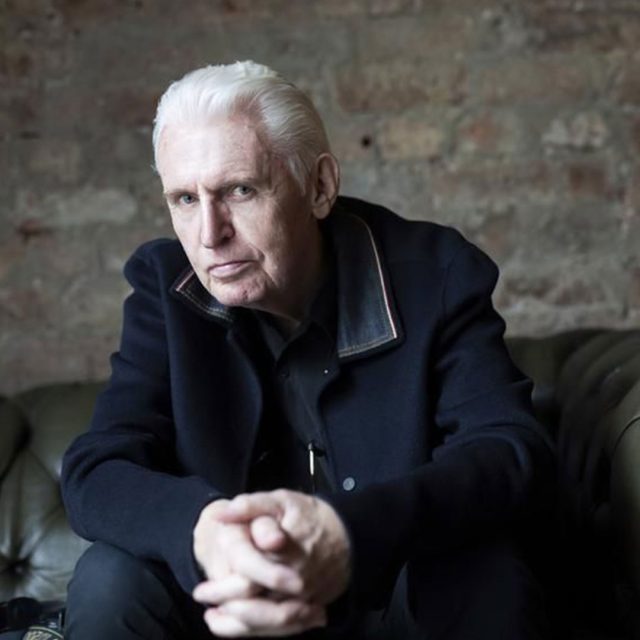
What actually is the Aintree Iron?
Mike entertains listeners with his fond memories of growing up in Liverpool and tales of finding another path when his dreams of going to Liverpool Art College were shattered.
We hear of the highs and lows of his time in the music business and Mike shares some of the serendipitous discoveries he made along the way. Continuing to be a prominent part of the Liverpool arts scene decades later with his distinct illustrations and photography style, Mike shares the latest on his upcoming music and art projects.
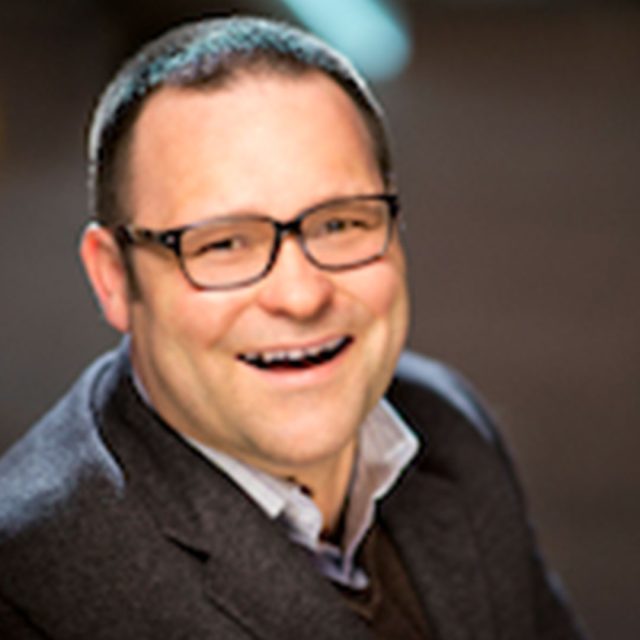
Having made quite a name for himself in the journalism world, Dr Paddy Hoey, chats to us about what made him want to become a journalist and how that’s now evolved into being a broadcaster and expert in media activism.
When I came to do work experience, the careers teacher got me a placement in the local paper and it was the day of the East Midlands air disaster unfortunately and several people from our town were involved in it – two or three had died – and so the reporters who’d normally be doing the work for the local newspaper were out speaking to the bereaved families. So I ended up writing TV columns and turning news releases into stories for the paper. So when I got the paper in my hand on the Thursday, my first work experience had given me 4-5 stories.
Paddy Hoey
Paddy speaks about growing up in Northern Ireland, where his inspiration to be a journalist came from and how his path has brought him to Liverpool. Paddy also shares his views on what role the media has in today’s society and the drastic changes that the industry has seen over the last 20 years.
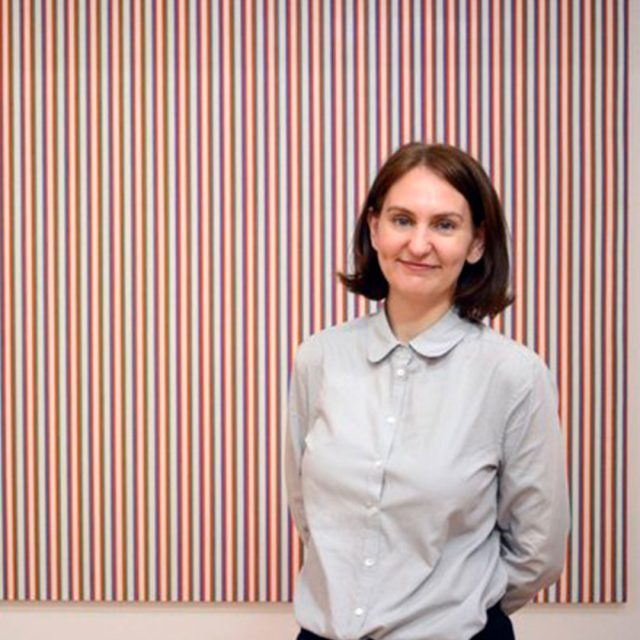
Helen gives listeners an insight into the path that her education took and how completing an MA in History of Art was the gateway to developing a successful career as an arts professional.
Recorded back in June of 2019, coincidentally on the day that marked her first anniversary in the role, Helen speaks of the fondness she has for Liverpool and shares her thoughts on how the creative industry can continue to thrive in the city.
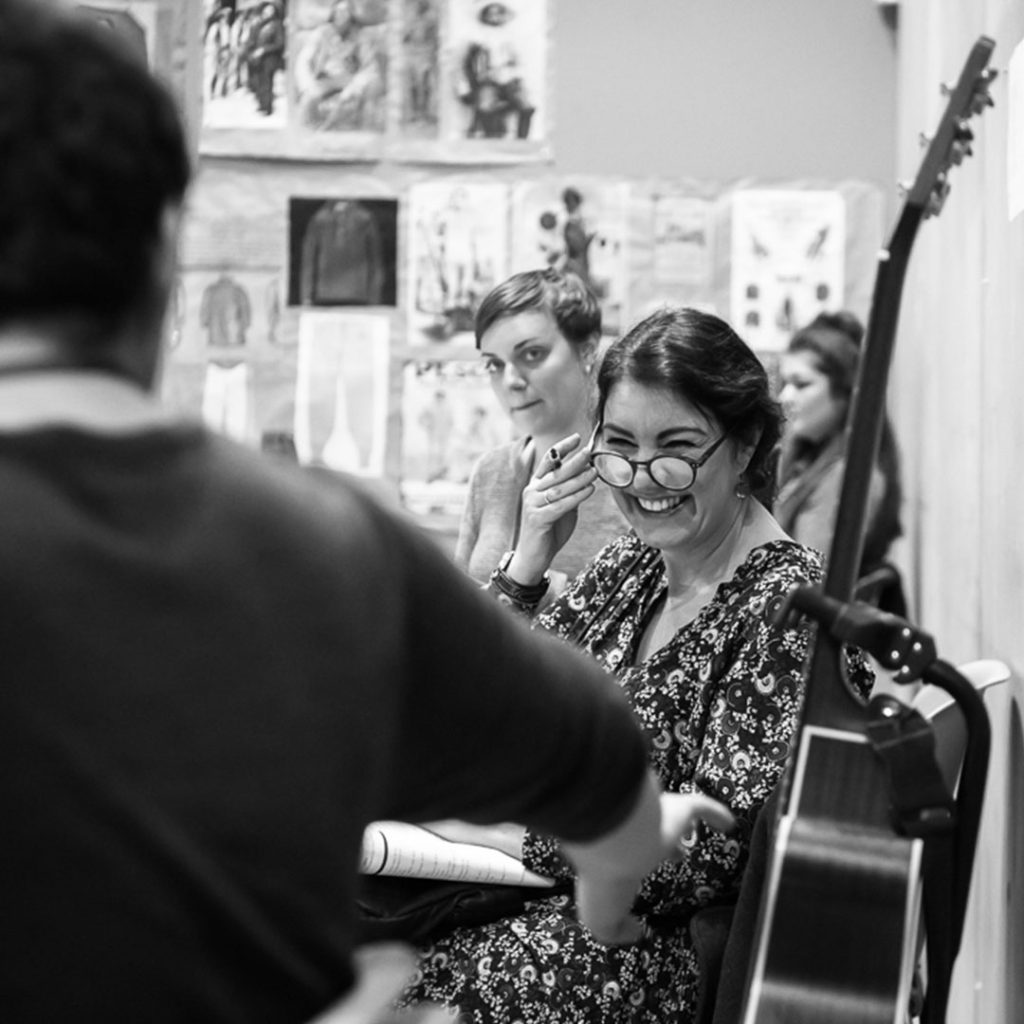
A natural storyteller – and director even from an early age – Gemma takes us on a journey of her childhood. We’re invited to hear all about the emotional yet heartwarming sequence of events that allowed Gemma to explore the notion of being a director when just a child. From directing conversations in her head to bossing other children around on the playground and forming a fascination with adult behaviour, these were some of the early telltale signs of Gemma’s dream job.
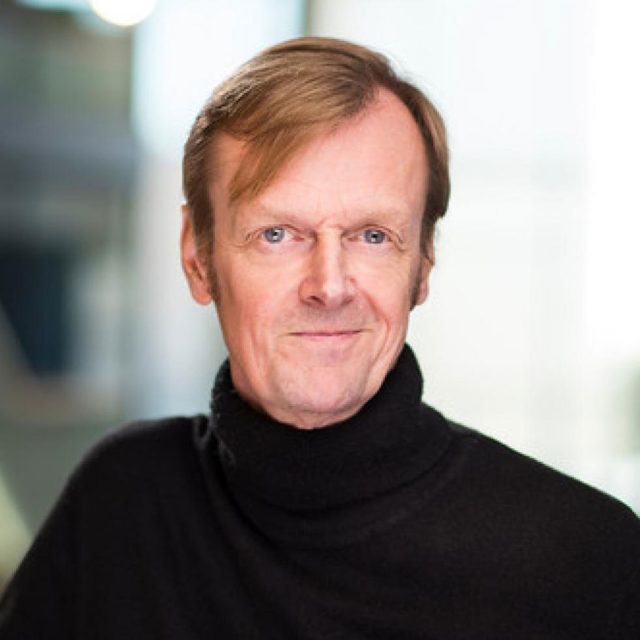
We’re kicking The Lonely Arts Club off with director, musician and illustrator, Carl Hunter. Following the release of Carl’s first feature film in 2019, Sometimes Always Never, we hear about what it was like to work with actors such as Bill Nighy & Jenny Agutter.
The conversation revolves around all of Carl’s favourite topics of film, music, design, fitness and homemade soup.
Many people will know Carl as the bass player in Liverpool band, The Farm, Carl talks to us about being in the band and the highs and lows of a career in the music industry.